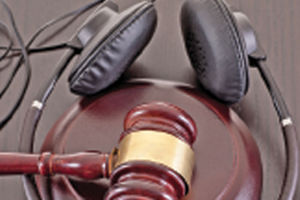
Copyright is a legal right given to an originator of specific works as described for a defined period of years to print, publish, perform, film, or record literary, artistic, or musical material.
I shared my manuscript with a publishing company, only to be told it wasn't good enough. I was shocked to discover a book by the same publisher resembling my work. Can I take legal action against them for stealing my work?
Dear disgruntled writer,
Manuscripts are people's literary works. Such works are protected from abuse and misuse by the law. Article 11 of the Kenyan Constitution Clause 2 Paragraph (a) behoves the state to promote national and cultural expression through literature, arts, traditional celebrations, science, communication, information, mass media, publications, libraries, and other cultural heritage. In the same Article in Paragraph (c), the state is mandated to promote people's intellectual property rights.
The government promotes the copyright rights of its people by protecting against the misuse or abuse of their work, by unauthorised others. Copyright is a legal right given to an originator of specific works as described for a defined period of years to print, publish, perform, film, or record literary, artistic, or musical material. The originators in this text are creatives who come through as authors, composers, dancers, singers, actors, and software designers. Such creatives are given this property right to facilitate their control, protection, and exploitation of their artistic works for their benefit.
Copyright rights
However, one only qualifies to have copyright rights if certain defined aspects of their work are adhered to. Therefore, the creative will only be legally deserving if their works are in a recognised category as provided for in Section 22, sub-section (1) of Part III of the Copyright Act. The classification includes literary works such as novels, stories, and poetic works; plays, stage directions, film sceneries, and broadcasting scripts; textbooks, written works, histories, biographies, essays, and articles: this category also includes, letters, reports, and memoranda; lectures, addresses, and sermons: secondly there are musical works, that comprise of music, alongside the visual symbols used to represent music, besides works composed to musical accompaniment: the third category is artistic, which consist of paintings, drawings, etchings, lithographs, engravings, prints, maps, plans and even diagrams. Similarly, architectural works in the form of models and buildings and artistic artistry qualify as creative works. Others include dramatic, audio-visual, sound recording, and broadcasts.
Subsection 3 of this section provides the other recognisable aspects of works that qualify for a copyright. It is provided that literary work must have come about by sufficient efforts to give it an original character, and such work must have been written down, recorded, or otherwise reduced to material form. Additionally, as described and provided by paragraph (b) of this Subsection, the work must have been written down, recorded, or otherwise reduced to material form. Sub-section 5 of Section 22 states that rights protected by copyright only accrue to the author automatically on affixation of the specific work subject to copyright in a material form.
Certain conditions must also be met for an author to benefit from copyright rights. Subsection 4 cautions that work shall not be ineligible for copyright by reason only that the making of the work, or the doing of any act about the work, involved an infringement of copyright in some other work. Paragraph (b) of subsection 5 affirms that such rights shall only accrue if the work is affixed to some channel of communication or representation.
Infringement
The elephant in this room is at what point does infringement occur? The several manifestations of infringement are provided for in Section 35 of Part IV of the Copyright Act. The section opens by giving the general copyright or related rights aspect of infringement, which is any act by a person who, without the express permission or license of the owner or author, does or causes the doing of any act which contravenes the provisions of the Copyright Act. Similarly, if such a person imports, assists, or causes the importation of such copyrighted works for their private use, while aware of the infringement. Further, non-registration of any copyrighted work cannot prohibit an author from making claims regarding infringement of their work.
However, as Subsection (4) of Section 35 states, infringement of any right protected under the Copyright Act shall be actionable at the owner's suit. By the prayers made in the author's petition, the court may award relief in several forms, including but not limited to damages, injunctions, and any other form of compensation or redress within the confines of the law, and the court's prerogative.
The right of any author to sue is constitutional under Article 22, Clause 1 of the Constitution, which states every person has the right to institute court proceedings claiming that a right or fundamental freedom in the Bill of Rights has been denied, violated, or infringed, or is threatened.






